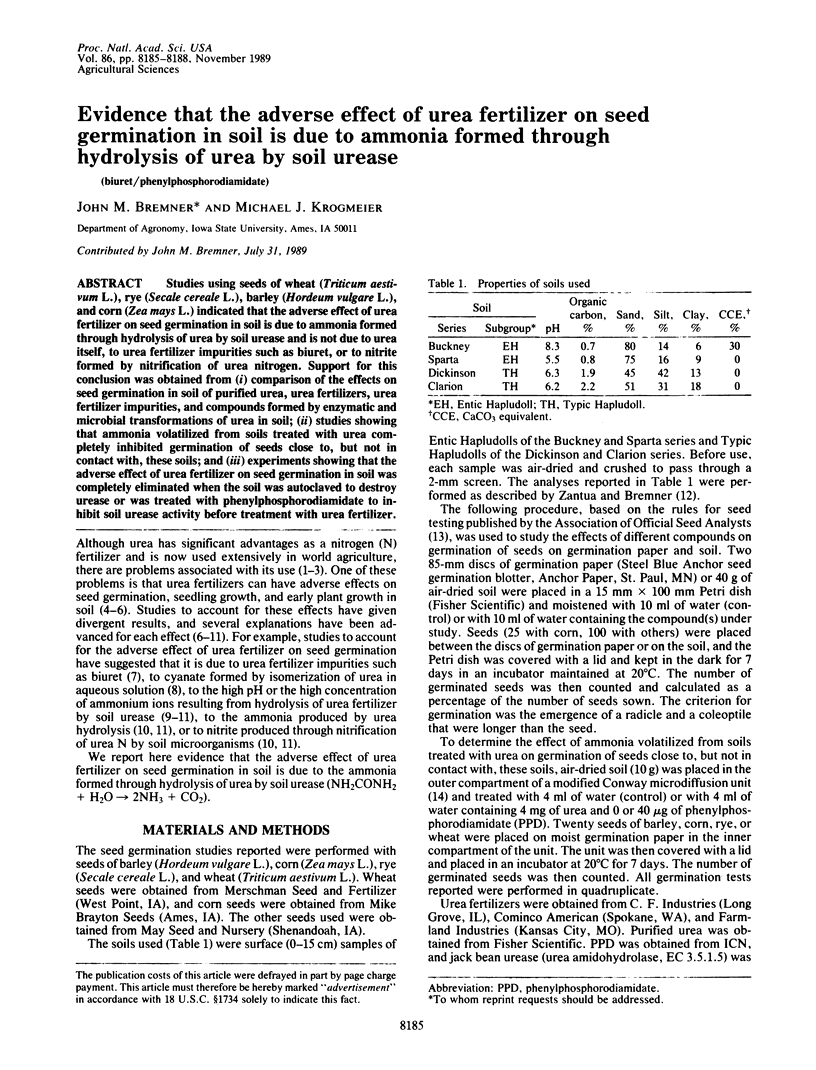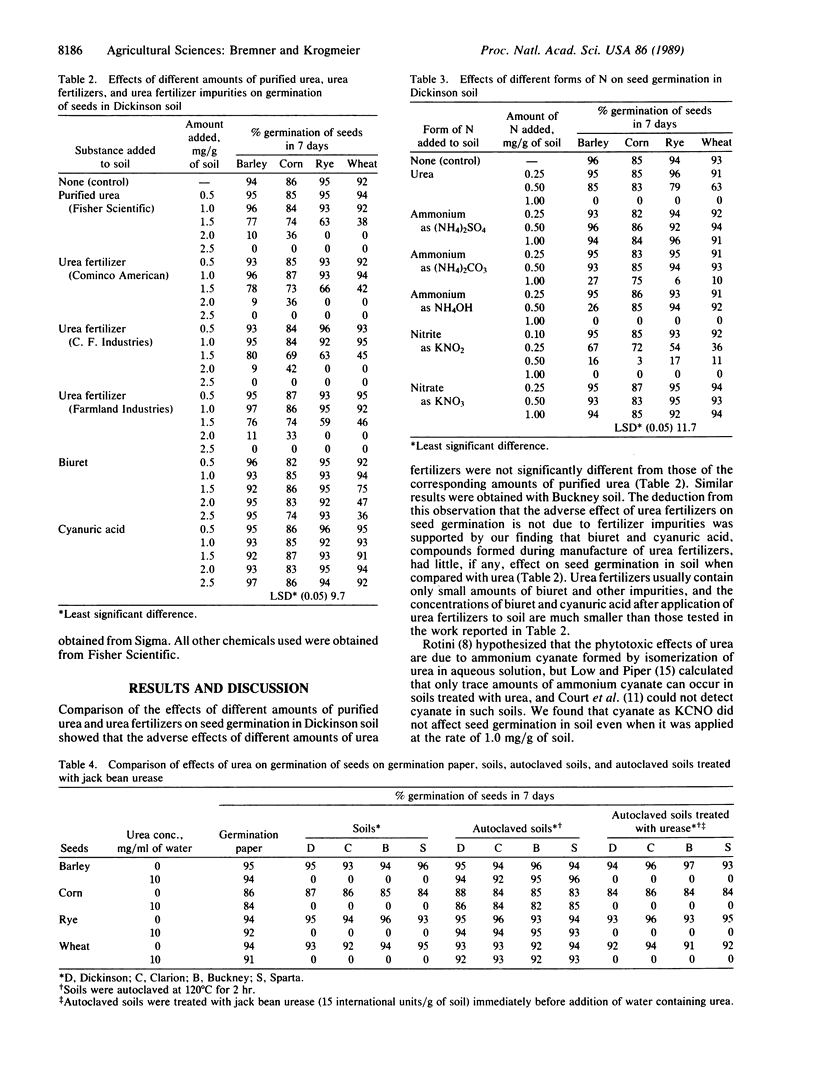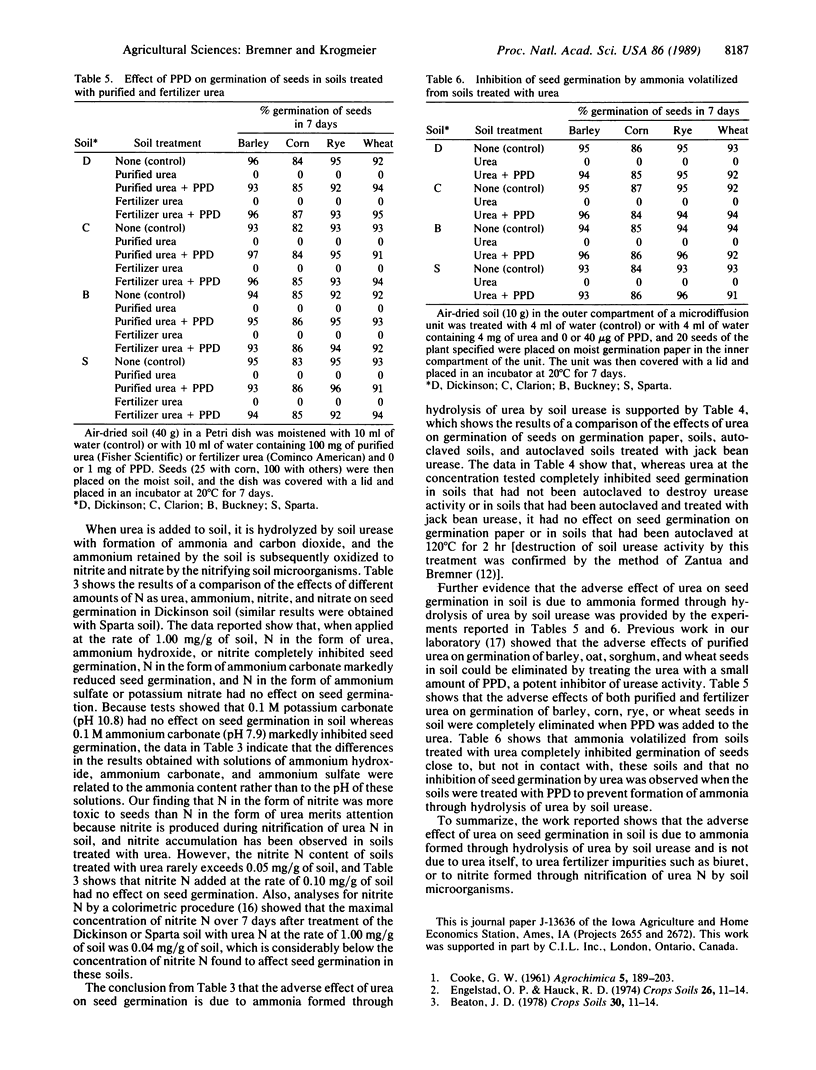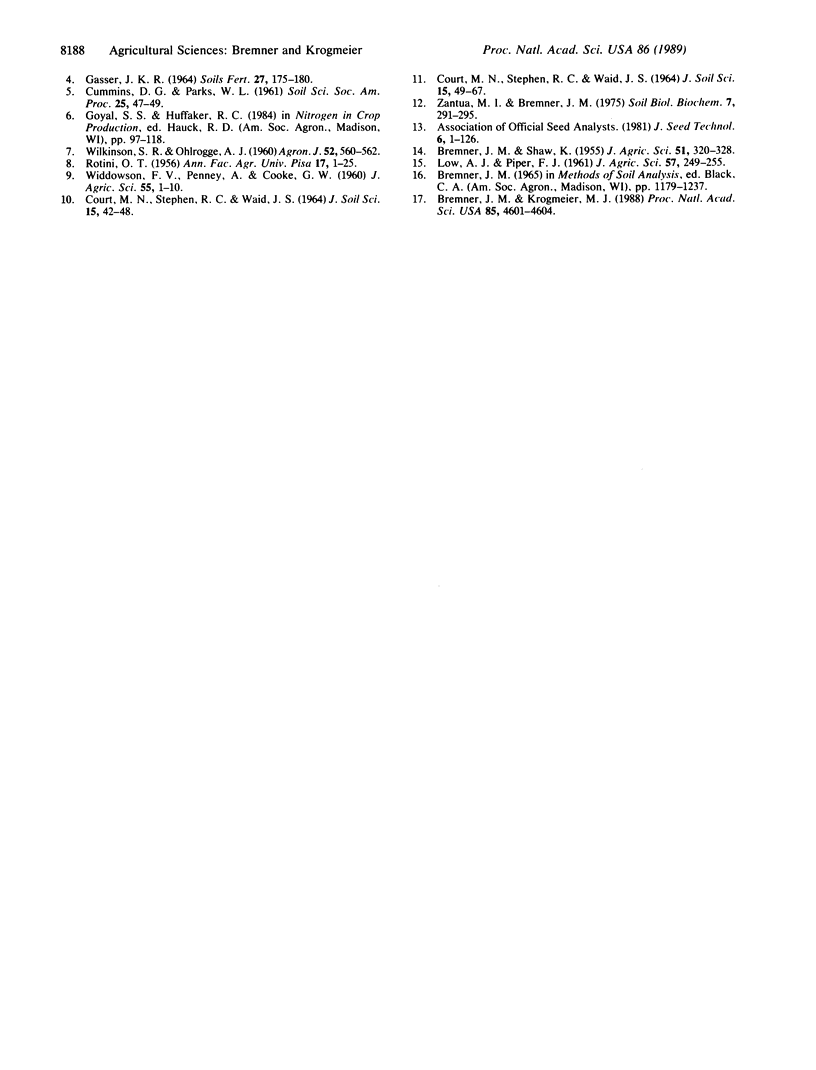Abstract
Studies using seeds of wheat (Triticum aestivum L.), rye (Secale cereale L.), barley (Hordeum vulgare L.), and corn (Zea mays L.) indicated that the adverse effect of urea fertilizer on seed germination in soil is due to ammonia formed through hydrolysis of urea by soil urease and is not due to urea itself, to urea fertilizer impurities such as biuret, or to nitrite formed by nitrification of urea nitrogen. Support for this conclusion was obtained from (i) comparison of the effects on seed germination in soil of purified urea, urea fertilizers, urea fertilizer impurities, and compounds formed by enzymatic and microbial transformations of urea in soil; (ii) studies showing that ammonia volatilized from soils treated with urea completely inhibited germination of seeds close to, but not in contact with, these soils; and (iii) experiments showing that the adverse effect of urea fertilizer on seed germination in soil was completely eliminated when the soil was autoclaved to destroy urease or was treated with phenylphosphorodiamidate to inhibit soil urease activity before treatment with urea fertilizer.
Keywords: biuret, phenylphosphorodiamidate
Full text
PDF



Selected References
These references are in PubMed. This may not be the complete list of references from this article.
- Bremner J. M., Krogmeier M. J. Elimination of the adverse effects of urea fertilizer on seed germination, seedling growth, and early plant growth in soil. Proc Natl Acad Sci U S A. 1988 Jul;85(13):4601–4604. doi: 10.1073/pnas.85.13.4601. [DOI] [PMC free article] [PubMed] [Google Scholar]


